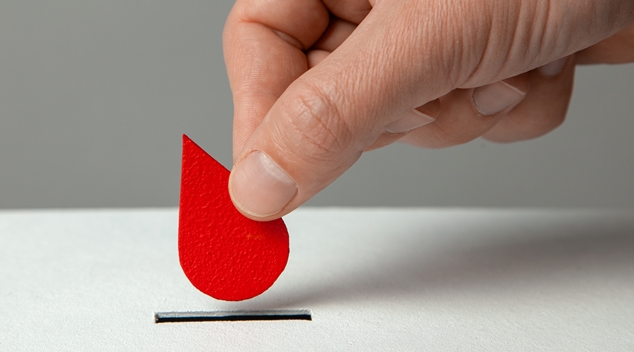
LGBTIQA+ rights advocates are calling on Australia to review it’s policy on banning gay and bisexual men from donating blood unless they have abstained from sex for three months.
Until 2021 the abstinence period was 12 months, but the latest international research says this is the wrong approach.
The new research shows it is safe for Australia to drop its gay blood ban and adopt a policy of individual risk assessment instead with the nation benefitting from an increased supply of safe blood.
Quantitative researcher, Dr Sharon Dane, on behalf of LGBTIQ+ advocacy organisation, Just.Equal Australia, has reviewed the current data and modelling comparing bans on gay blood donation such as Australia’s with a policy of screening donors for their individual risk.
The result of Dr Dane’s review is that there is no meaningful risk associated with lifting the gay blood ban and assessing donors on the basis of the risk associated with their individual sexual activity.
Dropping the current gay blood ban would also increase the amount of safe blood available for people in need of blood products.
As a result of the research reviewed by Dr Dane, gay blood bans have been replaced by individual risk assessment in a number of countries including the UK, the Netherlands, Israel and Argentina, and also soon in France and Germany.
Dr Dane said the evidence was clear.
“The evidence from most recent clinical studies and statistical modelling is clear: there is no meaningful risk attached to lifting the current abstinence requirement for blood donation by men, and trans women, who have sex with men, and replacing it with a new policy of screening donors for their individual sexual safety.”
“Modelling suggests this would actually increase the amount of safe blood available to those in need of blood products.”
“My report recommends that Australia abandon the current abstinence-based deferral and adopt individual risk assessment instead.”
“In particular, the report recommends the UK approach to individual risk assessment which is currently the fairest and most efficient model.” Dr Dane said.
Just.Equal Australia spokesperson, Rodney Croome, thanked Dr Dane for her work and said the report provides strong evidence for the safety and the benefits of change.
“For many years LGBTIQ+ Australians have known that the ban on many of our community members giving blood, is outdated, stigmatising and counterproductive.”
“Now we have clear international evidence and precedents that point Australia in the direction it must go.”
“We have sent Dr Dane’s report to the Australian Red Cross Lifeblood Service, the Therapeutic Goods Administration, and all state and federal health ministers urging them to act.”
“At the least, we hope the report will prompt the Red Cross Lifeblood Service to conduct its own international review and clinical studies.”
“We are confident a Red Cross Lifeblood review of the international scene would result in the same recommendation as ours.”
The ban on gay blood donation was put in the place in the 1980s when much less was known about the detection and transmission of HIV/AIDS.
The ban applies to all sexually-active gay men, as well as sexually-active bisexual men and transgender women who have sex with men, including those in a long-term relationship with their partner.
Earlier this year the Australian Red Cross Lifeblood Service reduced the abstinence period before gay men, and bi men and trans women who have sex with men, could donate from twelve months to three.
In July this year the UK removed its three-month abstinence period and moved to individual risk assessment.
To coincide with the release of Dr Danes report, Just.Equal Australia has launched a new petition.
It calls on the Red Cross Lifeblood Service and the Therapeutic Goods Administration to adopt international best practice by dropping the current abstinence period for gay men, and bi men and trans women who have sex with men, and adopt individual risk assessment instead.
OIP Staff
You can support our work by subscribing to our Patreon
or contributing to our GoFundMe campaign.





